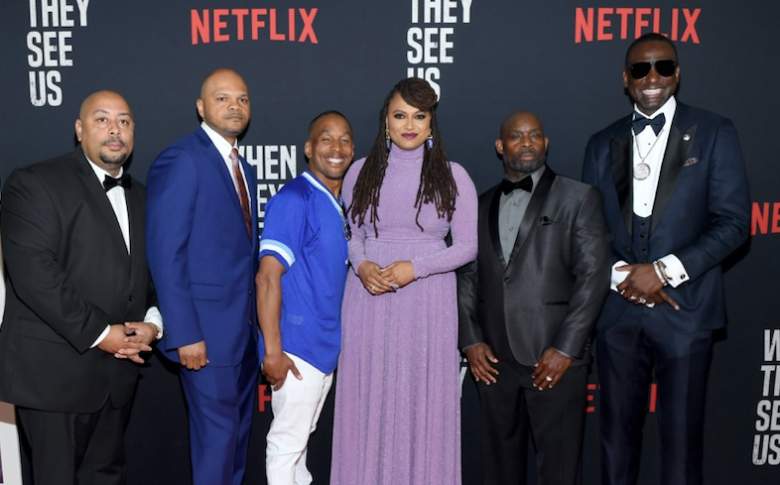
Getty
Justice Thomas B. Galligan was the judge for the Central Park Jogger case, and was responsible for handing down the sentencing terms to each of the Central Park Five. His selection for the role was controversial, and his time overseeing the case was filled with drama and screaming matches.
Galligan died in 2015 at 90 years old. His obituary reads,
Death Notice – Galligan, Honorable Thomas B., on July 30, 2015 at the age of 90. Devoted brother to the late Mary Galligan and the late Sister Rose Marie Galligan, SC. Proud World War II Veteran and served in the United States Navy. Former Judge of the Municipal Court of N.Y.C., subsequently appointed a judge of the New York City Criminal Court in 1974 and thereafter designated an Acting Justice of the State Supreme Court in New York County for 20 years. Judge Galligan was held in high esteem by his colleagues and was dearly loved by many faithful family members and friends.
You can see a picture of Galligan in this archived article from The New York Daily News. Here’s what you need to know about Galligan:
Galligan Was Personally Selected for the Case, Which Went Against the Standard Protocol
Though standard protocol in New York State was for a judge to be randomly assigned to a case, Galligan was personally selected for the Central Park jogger case by a court administrator, who said he was the judge best suited for the role. Per The New York Times in 1989, the defense attorneys for the Central Park Five protested this decision, saying it was intentionally harmful to their clients, given Galligan’s reputation of handing down especially harsh sentences.
Colin Moore, the defense attorney for Korey Wise (then Kharey Wise), said to the publication at the time, ”Judge Galligan has a law-and-order image. I don’t think anyone has been acquitted in his court in the last two years.” Moore even alleged that some prisoners and corrections officers referenced Rikers Islands as Galligan’s Island, a cruel joke implying how many prisoners Galligan sent to Rikers over the years.
An archived article from UPI reveals that one of the defense attorneys for the Central Park Five, Robert Burns, got into a shouting match with Galligan when he alleged that the case was rife with racial discrimination.
The back and forth reads,
‘There was a racially motivated case in Bensonhurst and in Howard Beach. None received the kind of publicity as this case did,’ said Burns, who is defending Yusef Salaam, 16.
‘Objection!’ said Assistant District Attorney Elizabeth Lederer.
‘Sustained. Don’t make statements, just ask questions,’ Justice Thomas Galligan.
‘Your honor, this is my examination here!’ snapped Burns.
‘I want it done — ‘ the judge began.
‘Your honor, you had no objection when Miss Lederer made statements about the law,’ Burns complained.
‘I sustained the objection, if you recall. I’m the judge here. Do not make speeches. Just ask questions,’ Galligan admonished him.
‘I’m getting ready to ask the questions,’ Burns remarked, turning his back on the judge and facing the jury pool.
Galligan Gave the Maximum Sentence Possible to the Central Park Five
During his sentencing, Galligan stated that the Central Park Five had turned Central Park into a “torture chamber,” according to The Los Angeles Times, and he sentenced three of the Central Park Five to their maximum term of five to 10 years in prison. Galligan said the defendants had shown “no remorse, only defiance” throughout the trial, and added that citizens of the city had the right to “freedom to walk and to be secure in their homes.”
At one point, Galligan said, “Central Park was turned into a torture chamber by mindless marauders seeking a thrill.”
In response, the three of the five (Yusef Salaam, Raymond Santana, and Antron McCray) gave brief statements, themselves. Salaam said in part, “I told the truth. I think my debt to society has been paid. This is my debt for being a black man.”
Santana said, “Everybody knows I am innocent of this crime.”
McCray thanked his family and said, “I’m gonna make it.”
